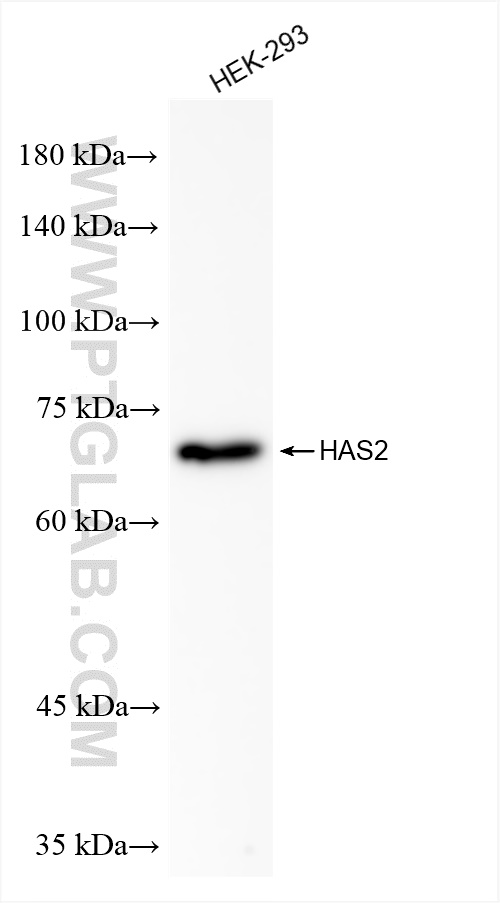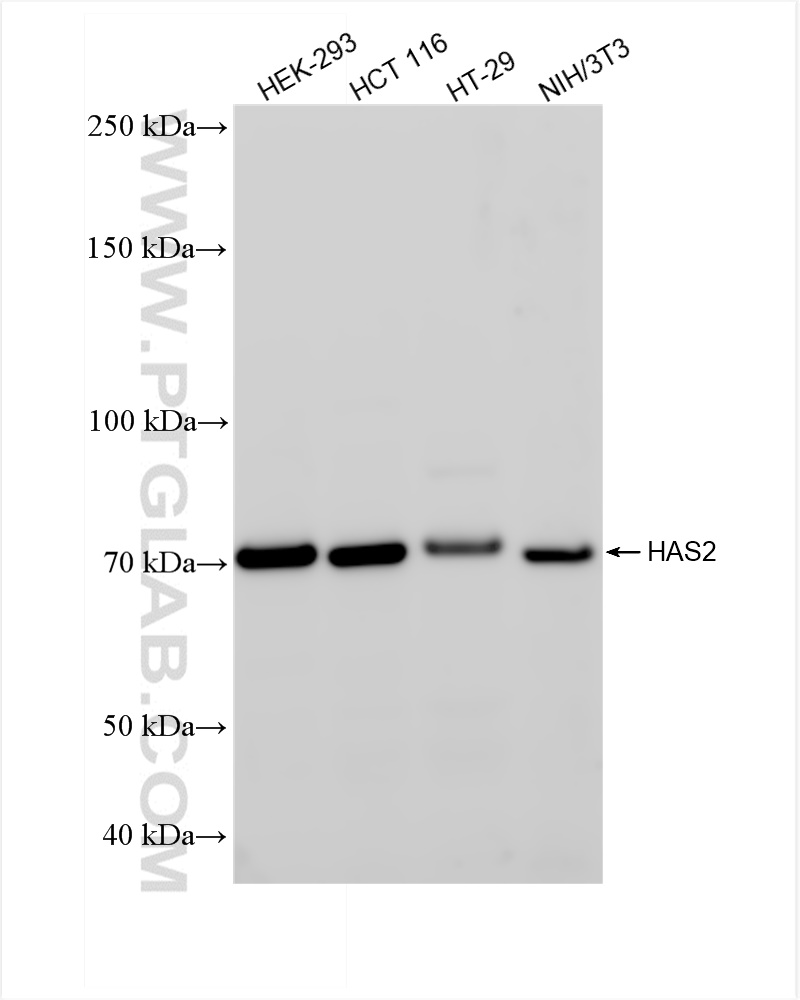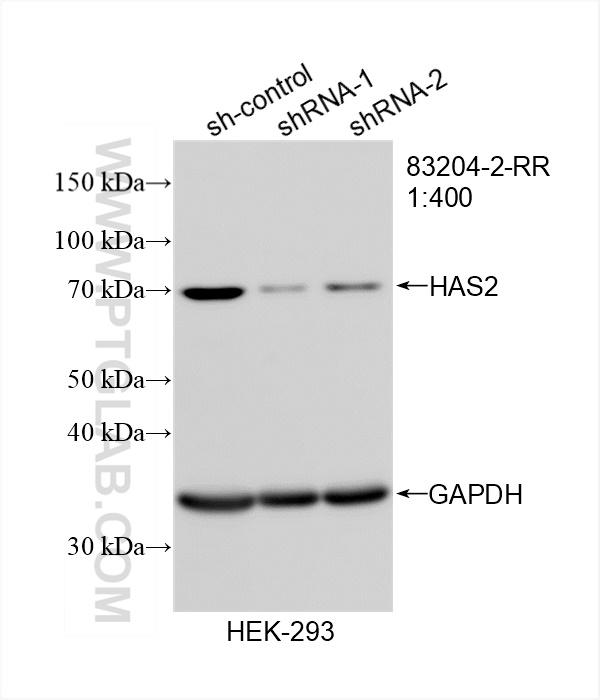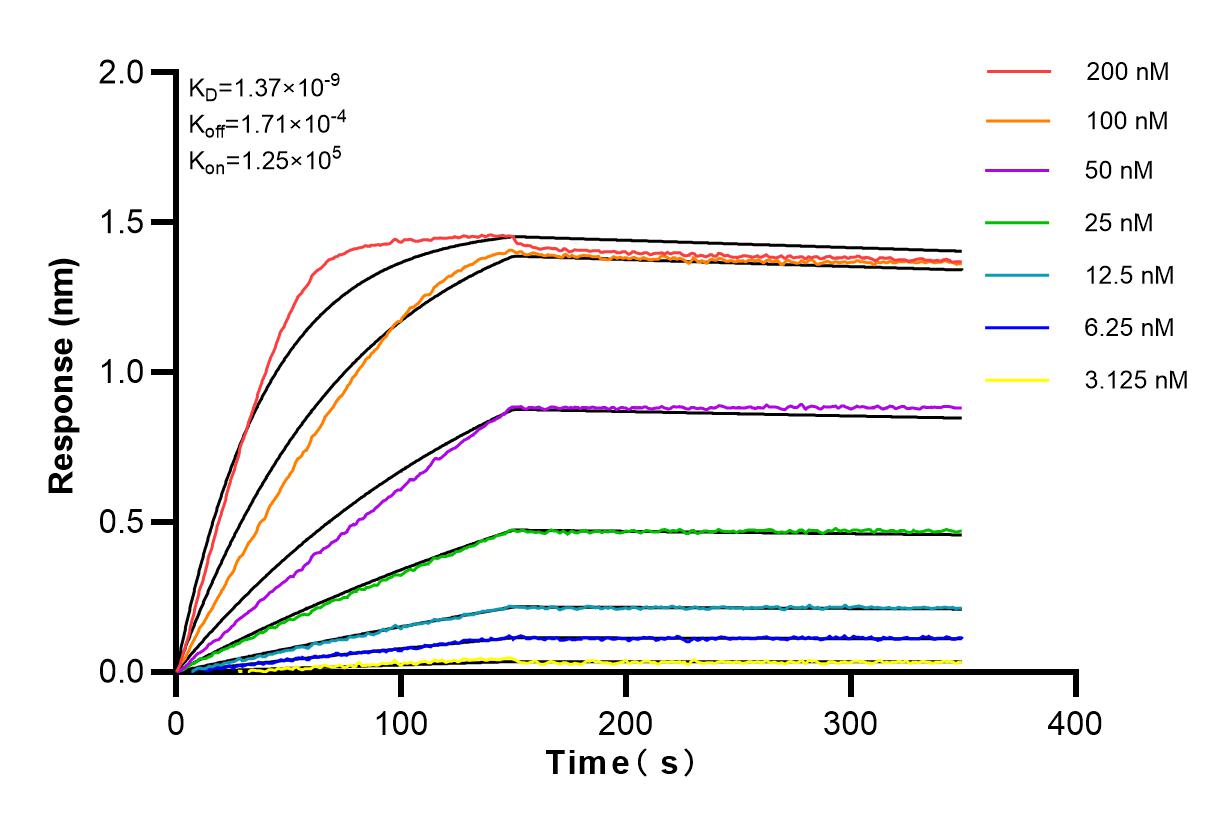验证数据展示
经过测试的应用
| Positive WB detected in | HEK-293 cells, HCT 116 cells, HT-29 cells, NIH/3T3 cells |
推荐稀释比
| 应用 | 推荐稀释比 |
|---|---|
| Western Blot (WB) | WB : 1:500-1:1000 |
| It is recommended that this reagent should be titrated in each testing system to obtain optimal results. | |
| Sample-dependent, Check data in validation data gallery. | |
产品信息
83204-2-RR targets HAS2 in WB, ELISA applications and shows reactivity with human, mouse samples.
| 经测试应用 | WB, ELISA Application Description |
| 经测试反应性 | human, mouse |
| 免疫原 | HAS2 fusion protein Ag34945 种属同源性预测 |
| 宿主/亚型 | Rabbit / IgG |
| 抗体类别 | Recombinant |
| 产品类型 | Antibody |
| 全称 | hyaluronan synthase 2 |
| 别名 | Hyaluronic acid synthase 2, Hyaluronate synthase 2, hyaluronan synthase 2, HA synthase 2, EC:2.4.1.212 |
| 计算分子量 | 552 aa, 64 kDa |
| 观测分子量 | 63-67 kDa |
| GenBank蛋白编号 | BC069353 |
| 基因名称 | HAS2 |
| Gene ID (NCBI) | 3037 |
| RRID | AB_3670892 |
| 偶联类型 | Unconjugated |
| 形式 | Liquid |
| 纯化方式 | Protein A purification |
| UNIPROT ID | Q92819 |
| 储存缓冲液 | PBS with 0.02% sodium azide and 50% glycerol , pH 7.3 |
| 储存条件 | Store at -20°C. Stable for one year after shipment. Aliquoting is unnecessary for -20oC storage. |
背景介绍
RIT2 (Hyaluronan synthase 2) is a member of the gene family encoding the hyaluronan synthase 2, which can generate high-molecular-weight hyaluronan (HMW-HA) (PMID: 35069543). HAS2 is the most critical synthase in producing hyaluronan and is well known for its involvement in cancer growth, metabolism and metastasis (PMID: 36386154). HAS2 is involved in cellular acquired resistance to drug therapy in BrCa. HAS2 expression was decreased in the endocrine-resistant ER+BrCa cells.
实验方案
| Product Specific Protocols | |
|---|---|
| WB protocol for HAS2 antibody 83204-2-RR | Download protocol |
| Standard Protocols | |
|---|---|
| Click here to view our Standard Protocols |



